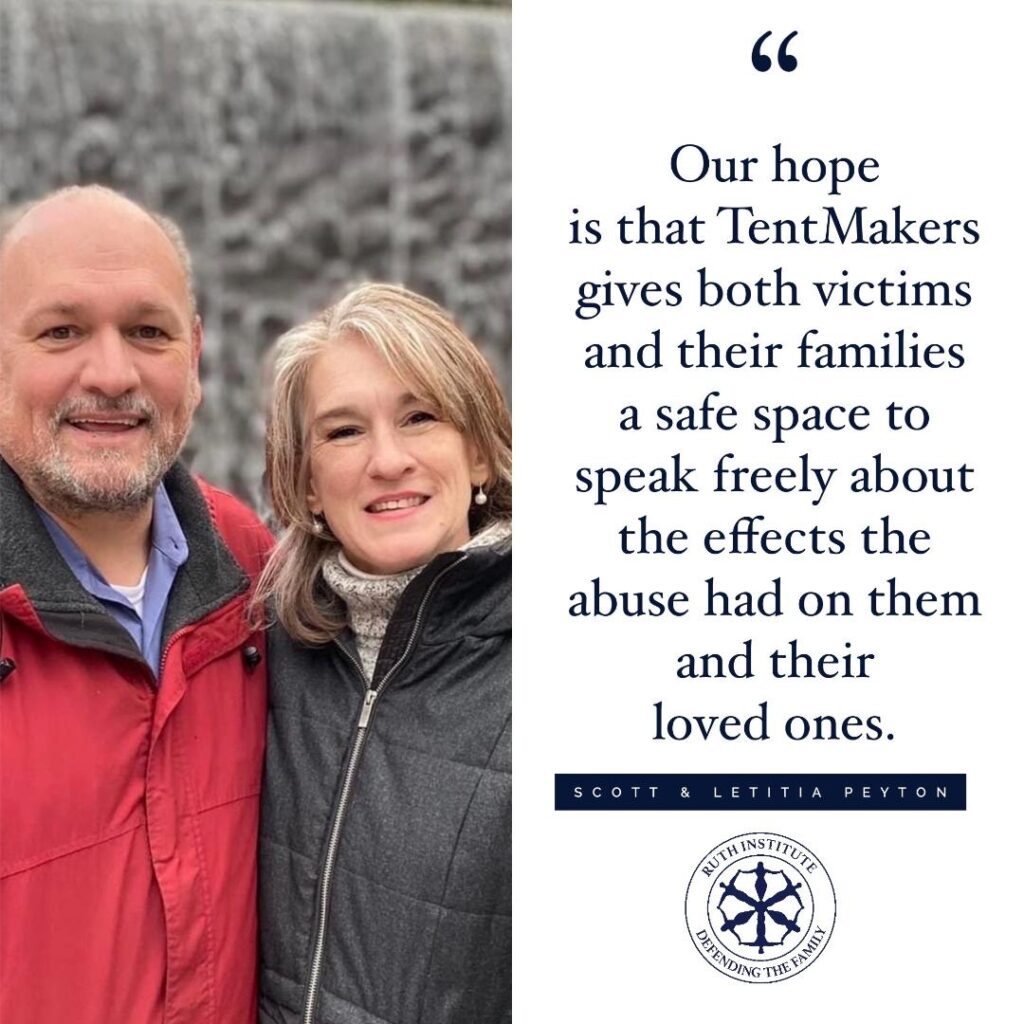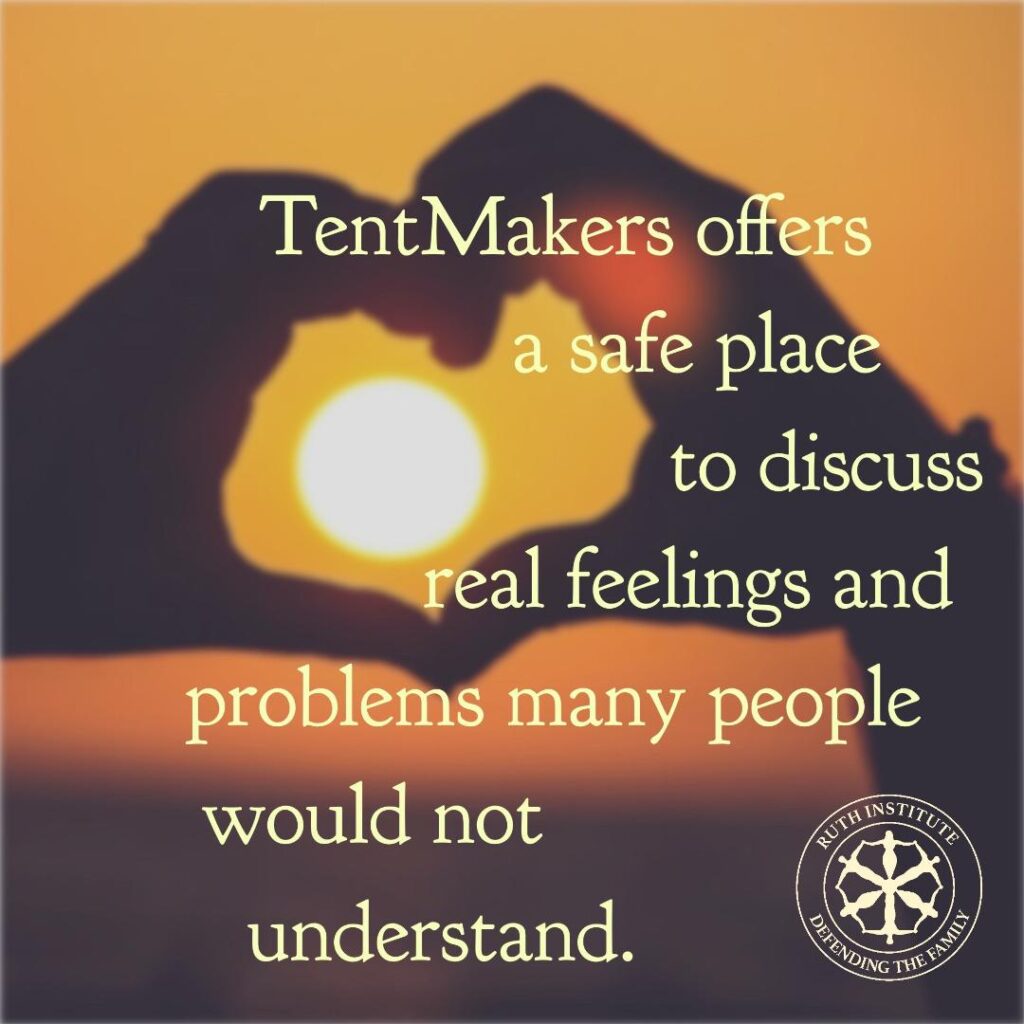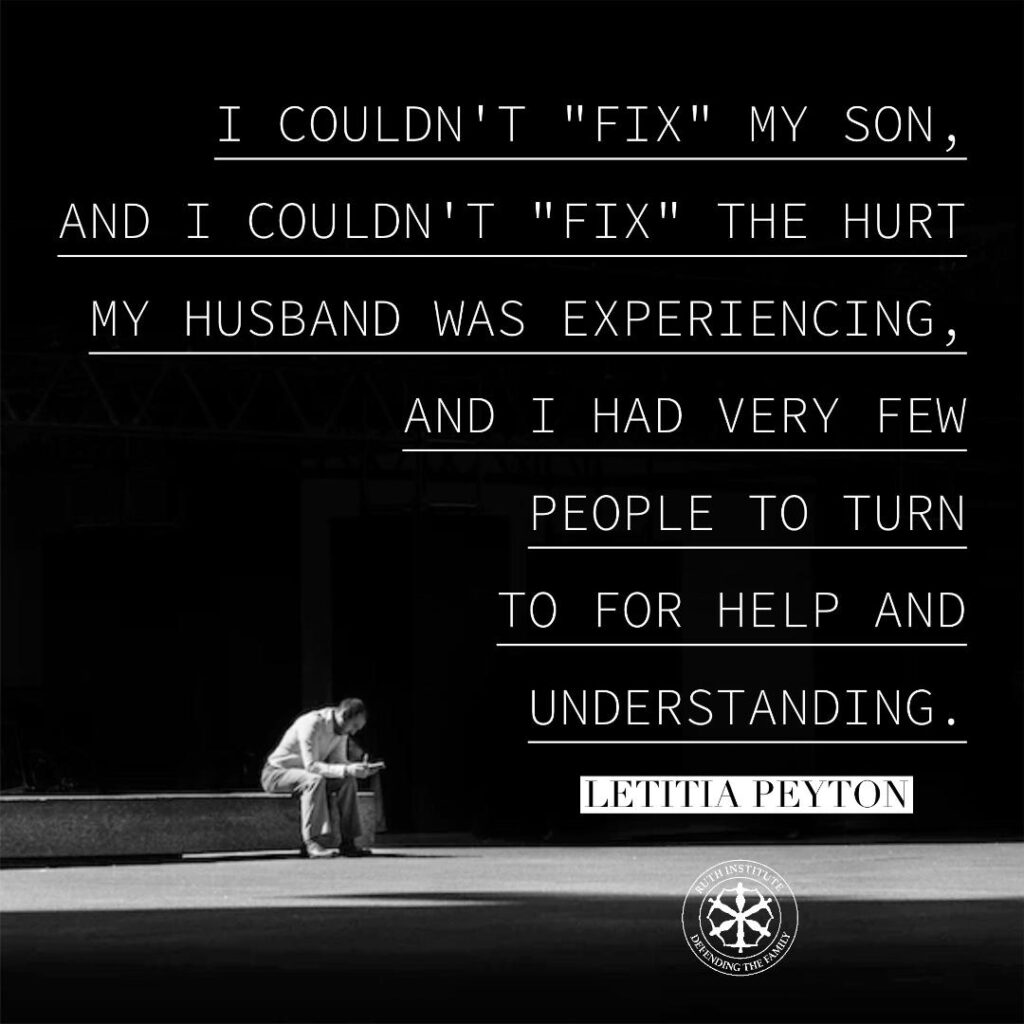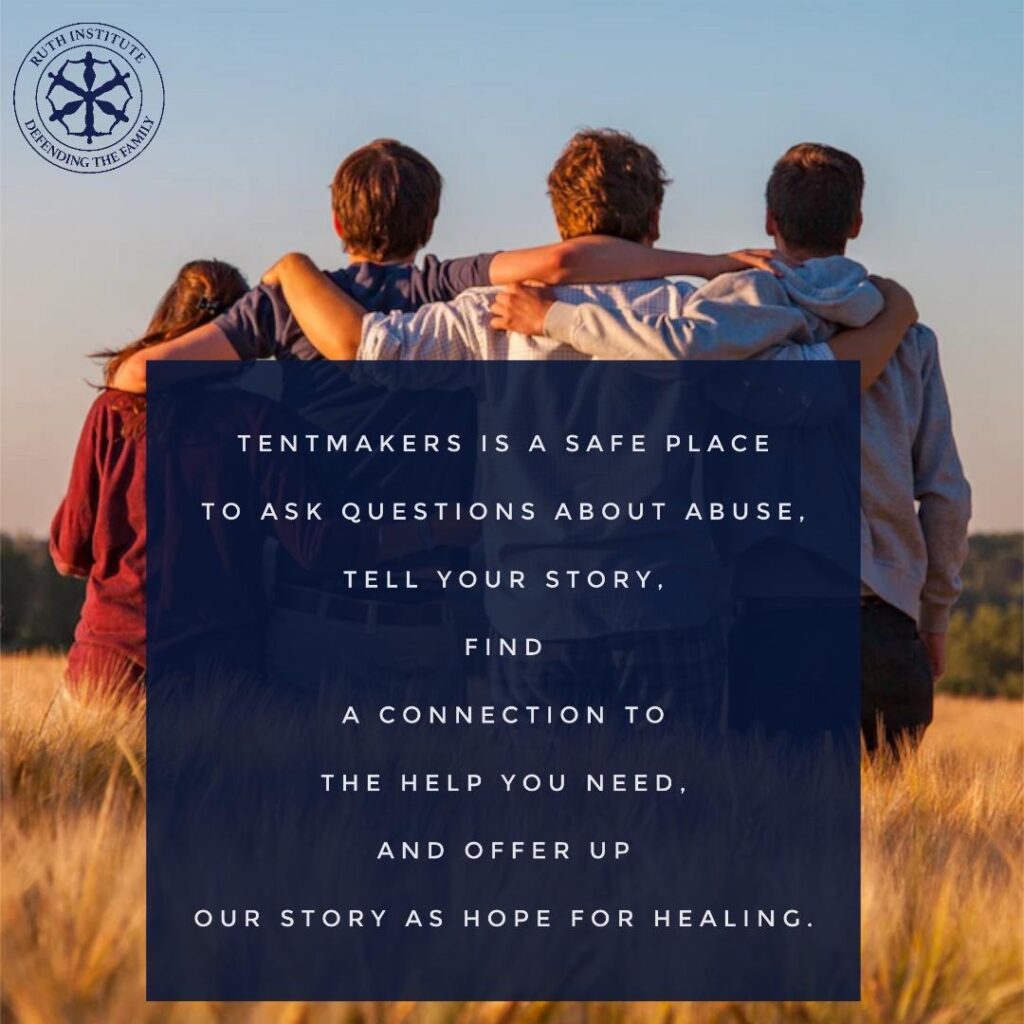You never know how your voice and your experiences might become a part of someone else’s story of healing. God calls us all to something different. The important thing is that we remain open to what we feel called to do. The Peyton family of Louisiana is one such example of what it means to answer the call of God.
When Scott and Letitia Peyton’s son came forward about the abuse he had suffered at the hands of a trusted Catholic priest, they were heartbroken. Like many families before them, their faith was shaken and their trust in the church they loved so much was betrayed. They didn’t know where to turn or what to do next.

Sadly, this is a very real tragedy that one too many families and loved ones of victims of clerical abuse have been forced to encounter. Especially when the perpetrator is a leadership figure, knowing where to turn and what to do next can be confusing and intimidating. Victims and their loved ones want to know what their options are.
Clerical abuse presents some unique challenges to victims who often want to seek help that doesn’t involve the Catholic Church. When victims have been so grossly betrayed by the priests and individuals they trusted, turning to the very institution that has all too often protected and defended corrupt priests and other leadership figures becomes impossible.
Thankfully for Louisiana, the Peyton family is taking their own heartbreaking situation and using it to help others. They family started their non-profit organization, the TentMakers, to help victims of clerical abuse by offering resources for hope and healing.
I recently spoke with Letitia Peyton about the TentMakers and she shared with me why this mission is such an important one.
What is the TentMakers?
The TentMakers of Louisiana, LLC (TTML) is a verified non-profit to support survivors of clergy sex in the Catholic Church to bring hope for healing, justice, life, and joy. The TentMakers of Louisiana seeks to educate the public and victims about clergy sex abuse and to support victims as they navigate the criminal justice system, the civil legal system, and receive counseling to address the trauma associated with clergy sex abuse.
Why is this non-profit necessary, especially in Louisiana?
We were so naive about clergy sex abuse that we thought we were the only ones in our Diocese going through this trauma. We spent a lot of time using google to find resources for help. Our son had a job and insurance, but we didn’t know how long he would be able to hold onto his career while going to counseling, meeting with our attorney, interviews with the police, and in the beginning, meeting with the Diocese. It was all a struggle. We tried to ensure a financial safety net or resources if he needed them.
Also, we needed a network of people we could trust and share our fears, hurt, sorrows, and betrayal. We found a couple of organizations, but they were mostly in the mindset of exposing the big picture of the problems in the church. We were not yet in that time frame. Realizing the problem was that people didn’t want to talk about the issue, victims were too traumatized to talk and lacked the trust to speak to strangers, and communities had been torn apart, we decided to start The TentMakers Of Louisiana. As parents, we saw the effects on our son, our other five children, our community, and what it was doing to our friends and felt we needed to offer some help. Learning that our diocese, The Diocese Of Lafayette, Louisiana, was ground zero in the United States also made sense that we would work from this Diocese to assist victims, their families, and their communities to bring change to the church hierarchy.

What are some of the unique challenges faced by clerical abuse? How can the TentMakers help with those challenges?
Some of the unique challenges, I think, are being alone, being an outcast from the only faith you’ve ever known and being able to trust again.
Trust is now a big factor. We find it hard to trust our Bishop, many of the priests of our diocese, and some of the people in our old church parish. Before clerical abuse, we turned to our priest for spiritual advice and consolation. Since clerical abuse and its widespread problem, we feel deceived about many things in the church and would not even consider turning to the church for spiritual advice or consolation. We turn directly to prayer now and friends who are mature in their faith. I have no idea how to repair the trust issue other than the church taking steps to acknowledge abusive priests, punish them, and enact new measures to act swiftly when a priest is accused and especially when there is concrete evidence. I know that men will be men and will always be tempted to sin. That is true with the general population, but the church is doing very little to condemn sin on all social issues that are affecting families, and that is also a problem.
For a long time, we felt alone and abandoned. It is something that many people would not comprehend that could happen in the church, but it does. You know that people know, and you know that people doubt the truth about what happened, even as in our case, when the priest confessed to it, and that alone leads to the victim (and their family) feeling like they are no longer welcome in their own church parish. It leads to isolation from church-sponsored events, community involvement, and not to mention Mass. The reason it leads to community isolation is that many of us go to Mass or related activities within our communities with others who are also involved in both the church and community.
We have been able to move forward and gain a sense of belonging in our community but not our church. The idea that we would be part of a church parish and then get hurt again by people we would grow to trust is too much to bear. We stay at what we consider a safe distance which is a terrible situation considering we still have young teenagers at home.
How can the TentMakers help with those challenges?
TentMakers offers a safe place to discuss real feelings and problems many people would not understand. I am not a direct victim, so I can’t speak to that aspect but what I can do is relate as a mother. As a mother, I watched helplessly as this evil unfolded and tore at my family, my church, and our community of friends. It’s not something I could fix, which was a hard reality. Generally, when your kids get hurt, you can fix the hurt or find a solution, but this is different. I couldn’t “fix” my son, and I couldn’t “fix” the hurt my husband was experiencing, and I had very few people to turn to for help and understanding. My hope is that TentMakers gives both victims and their families a safe space to speak freely about the effects the abuse had on them and their loved ones. Since we went full circle through the evil that clergy abuse is, meaning from finding out that our son was a victim, reporting it to the police, reporting it to the diocese, speaking openly to our bishop and priests in the beginning, hiring an attorney, filing a lawsuit, settling a lawsuit and speaking out after, we have a lot to offer.
I have also become an advocate to legislate for laws that will help victims to find some recourse to their abuse.

A lot of victims have expressed that they want no connection with the Catholic Church and they (understandably) hesitate to report their story directly to the Church. Do you find that this is the case with many of the people who have contacted you?
I think people are hesitant to contact the church, and I can say that their reasoning, whether they know it or not, is good reasoning. We contacted the church after the police told us it was safe to do so. In our experience, the church preferred to keep us talking to them and keep us in the victim state even after our priest had confessed and the police were involved. When victims contact the church, that means they are less likely to contact the police after, and that protects the church. Most of the victims I have dealt with have contacted the church, which didn’t help them and, in almost all cases, made things worse.
What kind of resources do you provide? How does it work? Can you walk me through what someone might expect if they were to contact the TentMakers?
We can help direct people to local counselors that are trauma-trained and local attorneys that are trained in sex crimes and trauma. As we learned, having a lawyer who is not trained in trauma and sexual abuse offers less help than one who is trained, and the same applies to a counselor or social worker. We offer support on an as-needed basis. Every victim has different needs.
Initially, we wanted to provide someone to be with victims as they walked through the process of reporting the crime to the police and the path that followed. We learned from a victim who requested that I be with them to offer support and guidance through a deposition that I could not be physically present with them in their legal battle. The attorneys would not allow that to happen but what did happen was that I was able to text with her throughout the day as she needed. We prayed through texting, and I was able to offer her some consolation. It was not the same as being physically present, but it did help her get through a tough few hours. I was able to share how our deposition went and what to expect, and it turned out to be very much the same as what she was going through that day.
The victims I speak with are generally women and need someone to listen and understand the trauma of clergy sex abuse and what it has done to them. Most have not been through the legal process and don’t want to start it at their particular state in life. Understanding that this disrupts life in every aspect is probably something people would be unable to wrap their heads around.
My hope is that TentMakers is a safe place to ask questions about abuse, tell your story, find a connection to the help you need, and offer up our story as hope for healing.

How can people help support the TentMakers?
We are excited to be starting a new year in 2023. I am working in a coalition across Louisiana to bring awareness and legislation for victims of clergy sex abuse. The alliance is working on Justification Defense for those imprisoned who committed a crime because of or during abuse. (That is the short version of the legislation.) I want to bring awareness to the fact that victims of clergy sex abuse are currently incarcerated because of the trauma of clergy sex abuse so that they can get the help they need. I have also participated in Awake Milwaukee Family and Friends Conversations and will be part of a Courageous Conversations panel in 2023. I plan to work closely with Awake Milwaukee in 2023 and possibly expand their work model in Louisiana.
My hope is to do speaking engagements to help victims by educating the public about the effects of clergy sex abuse on the victims, their families, and their communities. It’s a tough topic because so few people can speak on it or even want to. I think I can speak on it with an offer of hope and healing with a focus on victims and church reform in a way few people can. I hope we can reunite victims and church communities by speaking on the topic without fear of reprisal. We will also continue to meet with victims and offer any other needed help. Donations help us keep our website up, offer community trauma training, and help us expand in the future. To help support our efforts, people can go to our website to donate. https://tentmakers.la/clergy-sex-abuse-trauma-donate/
Thank you, Letitia, for taking the time to answer my questions. Your family’s mission is surely bringing so much help, hope, and healing to many!



